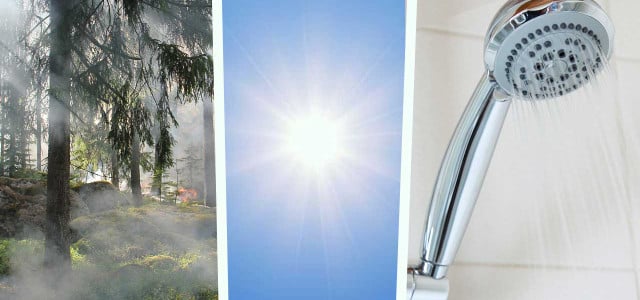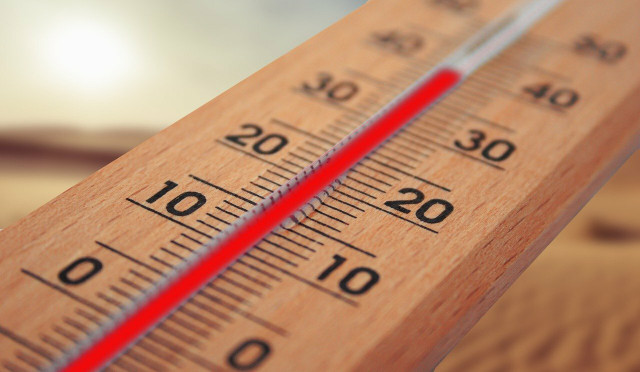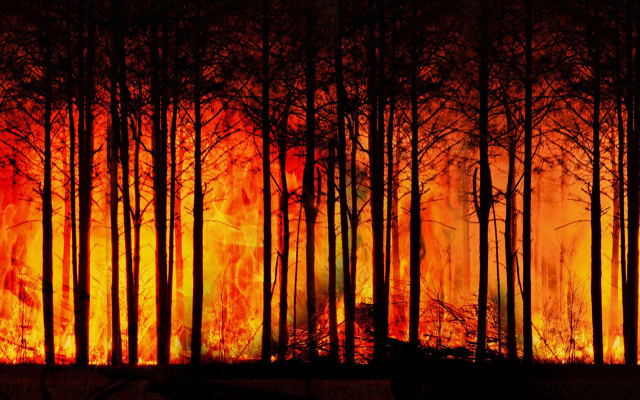
Are 40 degrees normal in summer or not? And are you safe from sunburn in the shade? Utopia took a closer look at some common heat myths.
1. Claim: “In the shade I am safe from sunburn”
Unfortunately it’s not that easy. According to the Techniker Krankenkasse (TK), around 50 percent of the sun’s rays still arrive under a parasol. On the beach, sand and water can even increase UV radiation. Even in the shade of a tree you can get sunburned and should therefore sunscreen.
Incidentally, the TK also recommends sunscreens for tanned skin. Because the protection that a tan offers from the sun is minimal – with a medium skin type it increases by a factor of 3 to 4. Here the TK rightly asks: “Would you use a sunscreen with SPF 3?”
- Here you will find tips to prevent sunburn and the best home remedies for sunburn if you do.
2nd claim: “40 degrees in summer is normal”

This assertion needs to be looked at more closely. Yes, there were earlier summers when the 40-degree mark was broken in Germany. In 1983, for example, a temperature record of 40.2°C, which was valid until 2001, was measured in Gärmersdorf near Amberg in the Upper Palatinate. And since then, according to Statista, many other places have surpassed the 40-degree mark, for example in 2003 and 2019.
But there can be no question of “normality”, especially if you look at the development over a longer period of time. It is even enough to look at the number of days with over 30 degrees in Germany – this has increased significantly in recent decades, even at locations above 1,000 meters above sea level.
Incidentally, the temperature record in Germany is now 41.2 degrees, which was measured in Duisburg in 2019. The World Weather Organization (WMO), among others, warns that heat waves are becoming more frequent “and the negative trend will continue until at least 2060, regardless of the success of our climate protection efforts”.
- Also read: Weather or climate? The difference simply explained
Claim 3: “It’s hottest around noon”
Here you have to distinguish between the highest point of the sun and the highest temperature. Because of summer time, the sun is not at 12 p.m., but rather around 1:30 p.m., assures an employee of the German Weather Service (DWD).
However, it gets the hottest later – usually between 5 p.m. and 6 p.m. By that time, the sun had heated both the air and the ground, which warmed up in addition to the sun’s rays. “After 6:00 p.m., the solar radiation decreases again due to the angle of incidence, i.e. the position of the sun,” says the expert. Incidentally, according to her, the lowest daily temperature is reached shortly after sunrise.
Claim 4: “Heat causes forest fires”

Higher temperatures cause more water to evaporate, which can contribute to droughts. And drought makes forests more vulnerable to wildfires.
But even on a hot day, a tree is unlikely to burst into flames of its own accord. Rainer Städing, honorary spokesman for the Bund Deutscher Forstleute, points out to the RND the most common reason for forest fires: people. “Intentional ignition is not the most common cause,” says Städing. The main reason is careless behavior, such as the cigarette butt carelessly thrown away (also from the car).
Fires are often attributed to broken glass, which bundles the sun’s rays in the forest and thus causes fires. But that might also be a myth. Another expert from the German Fire Brigade Association told RND that this could not be proven in tests, even under ideal conditions. Clear plastic and glass bottles with clear liquid would theoretically work, but the expert assesses the risk as low. Also read: Forest fire caused by a shard? You should know that
Claim 5: “In the heat, a cold shower or a cold drink helps”
Let’s start with the drink. One should be careful here. A nutritionist warns: “Ice-cold drinks can lead to stomach cramps, which in turn impedes fluid intake.” The often-cited explanation that the body has to warm up cold drinks first is wrong – the ambient temperature in the gastrointestinal tract automatically takes care of that.
In itself, drinking is very important when it is hot because we lose a lot of fluid when we sweat. If you don’t feel like tap water, you can make an infused water, i.e. water with ginger, lemon and other flavors.
And the cold shower? This causes the vessels to contract in order to keep the heat inside the body – a climate doctor reports to the Stuttgarter Nachrichten. Ultimately, this leads to increased blood flow to the skin.
Lukewarm showers can therefore be useful, but also somewhat more energy-intensive. A daily shower is usually not necessary, there is a lot of potential for saving water and energy. In an interview with Utopia, a dermatologist explained which parts of the body should be cleaned, how and how often.
Read more on Techzle.com:
- Vegan ice cream is all the rage: the best brands and recipes
- Hirschhausen: “Biggest health hazard we need to prepare for this century”
- Trees suffer from the heat – here’s how you can help them